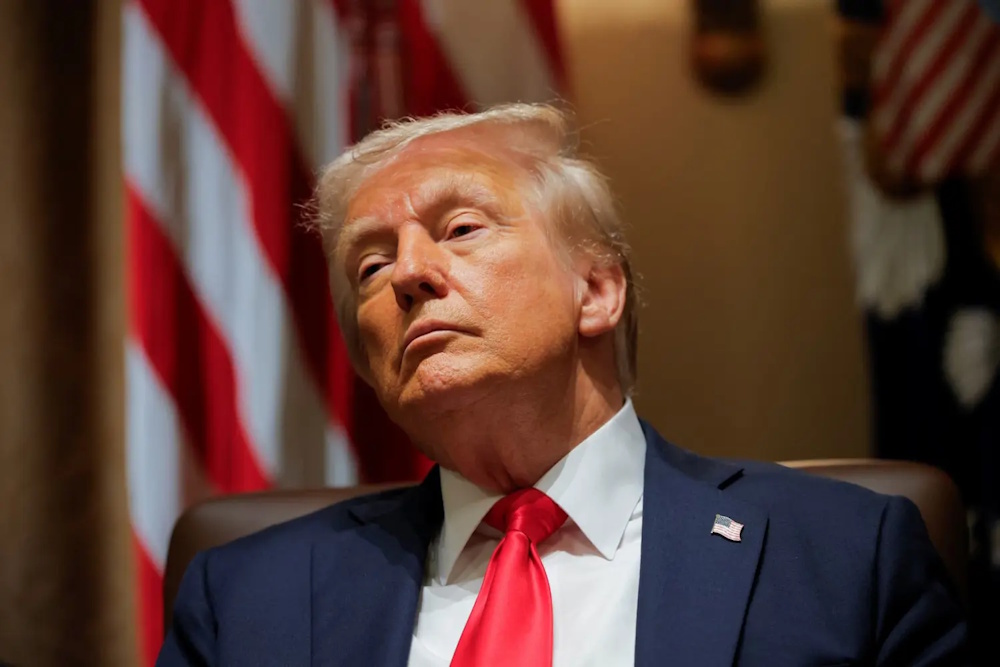
President Donald Trump, facing the escalating affordability challenges in the United States, has proposed an unconventional remedy: distributing rebate checks to Americans funded by the tariffs collected during his administration. “Individuals who oppose tariffs are misguided!” Trump made a post this past Sunday. “A dividend of at least $2000 per person (excluding high-income individuals) will be distributed to all.” It represents a daring commitment, yet it is fraught with numerous substantial challenges. Trump has often proposed the concept of tariff rebate checks. Before the proposal this weekend, Trump had indicated in August that Americans might receive a share of the tariff revenue. “We’re taking in so much money that we may very well make a dividend to the people of America,” Trump stated at that time. American importers initially bear the burden of tariffs, yet they have been transferring a portion of these increased costs to consumers, indicating that Americans are indirectly shouldering the financial impact of tariffs as well. The concept bears resemblance to the stimulus checks distributed following the pandemic-induced recession — first during the latter part of Trump’s initial term in 2020, and subsequently in 2021 under the administration of former President Joe Biden. Trump proposed that the funding for these tariff rebate checks might not come from a general pool of taxpayer funds. Instead, he indicated that it could be sourced from the revenue generated by US importers who are subject to the historic tariffs he has enacted on a wide array of imported goods.
Treasury Secretary Scott Bessent expressed uncertainty regarding the proposal during an interview on Sunday. Bessent indicated that no formal proposals have been put forth regarding the distribution of tariff revenue and noted that Trump’s reference to a $2,000 payment “could come in lots of forms,” which may include compensating for lost revenue from the absence of taxes on tips, overtime, and Social Security payments. The Trump administration has amassed over $220 billion in tariff revenue, encompassing a combination of tariffs imposed by Trump and those that were already in effect prior to his presidency, as reported by the US Treasury. According to the reports, over 163 million Americans submitted their tax returns in 2024. A rough estimation suggests that $2,000 stimulus checks would incur a total expenditure of approximately $326 billion. This amount exceeds the tariff revenue that the United States has accrued since the commencement of Trump’s second term. Trump indicated that he would exclude affluent Americans; however, the specific threshold remains ambiguous, raising questions about whether this could compensate for the disparity. Even with an income threshold of $100,000 — which is not among the highest income tax brackets — approximately 150 million adults would be eligible. The administration would incur an approximate cost of $300 billion.
A recent social media post suggests that the president believes there will be sufficient funds remaining after the distribution of tariff rebate checks to contribute towards reducing the nation’s nearly $40 trillion debt. “All money left over from the $2000 payments made to low and middle income USA Citizens, from the massive Tariff Income pouring into our Country from foreign countries, which will be substantial, will be used to SUBSTANTIALLY PAY DOWN NATIONAL DEBT,” Trump wrote on Truth Social. A representative from the White House did not detail the criteria necessary to be eligible for a payment. “The Administration is committed to putting this money to good use for the American people,” the official stated. Another complicating factor is the apparent skepticism of the Supreme Court regarding the Trump administration’s invocation of emergency powers to implement tariffs. Approximately $100 billion of the total tariff revenue to date has been amassed through this approach. Should the court decide in favor of the opposing party, the Trump administration may be compelled to reimburse businesses, thereby considerably diminishing the pool of tariff funds that could be allocated as rebates for American households.
The distribution of funds to individuals may further complicate the process of refunding businesses. Congress holds the authority over fiscal matters, and previous stimulus checks have necessitated Congressional endorsement. The extent of Trump’s support for advancing such measures remains uncertain. While stimulus checks have demonstrated significant political appeal historically, their issuance has predominantly occurred in the context of recessions or emergencies. The American economy is currently positioned in neither category. Rebate checks may intensify the upward pressure on prices, particularly as Americans identify inflation and affordability as their primary concerns. Distributing checks may provide a temporary boost to the U.S. economy at an inopportune moment, potentially leading to adverse effects for American households if the Federal Reserve is compelled to increase its benchmark interest rate to address escalating prices. This may result in Trump forfeiting crucial support from fiscal conservatives within his own party. Even if the rebate checks receive approval, it would be prudent not to hold your breath. In the context of the pandemic, individuals in the United States who opted for direct deposit saw the funds reflected in their bank accounts approximately one week following the enactment of the initial stimulus package. The situation became considerably more precarious for Americans who opted to receive paper checks. The duration of that process was approximately 20 weeks.

